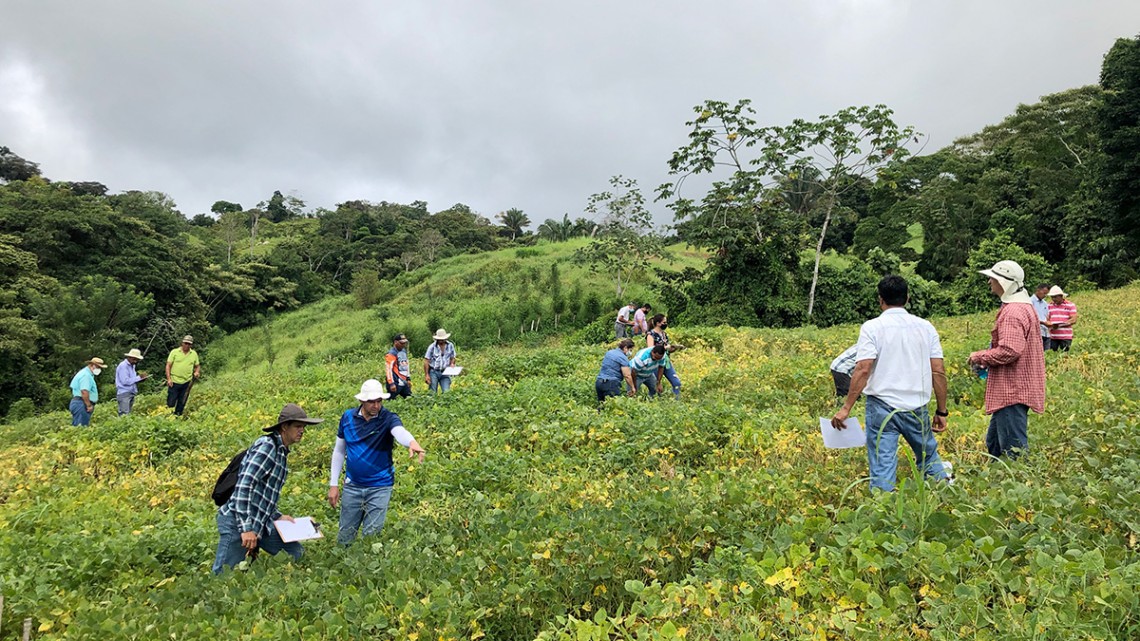
Researchers and farmers discuss variety preferences in a red bean field in Costa Rica.
News directly from Cornell's colleges and centers
Cornell, Feed the Future collaboration expands options for farmers in Costa Rica
By Krisy Gashler
Beans are a staple crop for Costa Rican farmers, and a new variety of red bean released this spring is adapted to low-fertility soils, possesses increased resistance to disease and is 15% higher yielding than the most cultivated variety currently grown in the country.
A coalition of organizations and scientists have worked for seven years to develop and test the new variety, with support from the Feed the Future Innovation Lab for Crop Improvement. For the past three years, they have been aided by Sergio Puerto, a Ph.D. candidate in applied economics at Cornell University, who conducted a randomized control trial involving 800 farmers and 5 potential new varieties. Puerto’s analyses, which form part of his Ph.D. dissertation, were based on a method called triadic comparison of technologies, or Tricot, which involves recruiting farmers as citizen-scientists to grow and assess seeds under a far greater diversity of conditions than would be possible for plant breeders to do alone. These collaborative trials also enable farmers to influence which seeds are ultimately released to the public, and they speed adoption of new varieties.
“It’s very important to know farmers’ preferences, because agricultural technology ultimately isn’t helpful if farmers don’t adopt it,” Puerto said. “A variety may have specific benefits – increased productivity, disease-resistance, weather resilience – but the farmers have to like it to adopt it.”
Read the full story on the Feed the Future Innovation Lab for Crop Improvement website.
Media Contact
Get Cornell news delivered right to your inbox.
Subscribe
